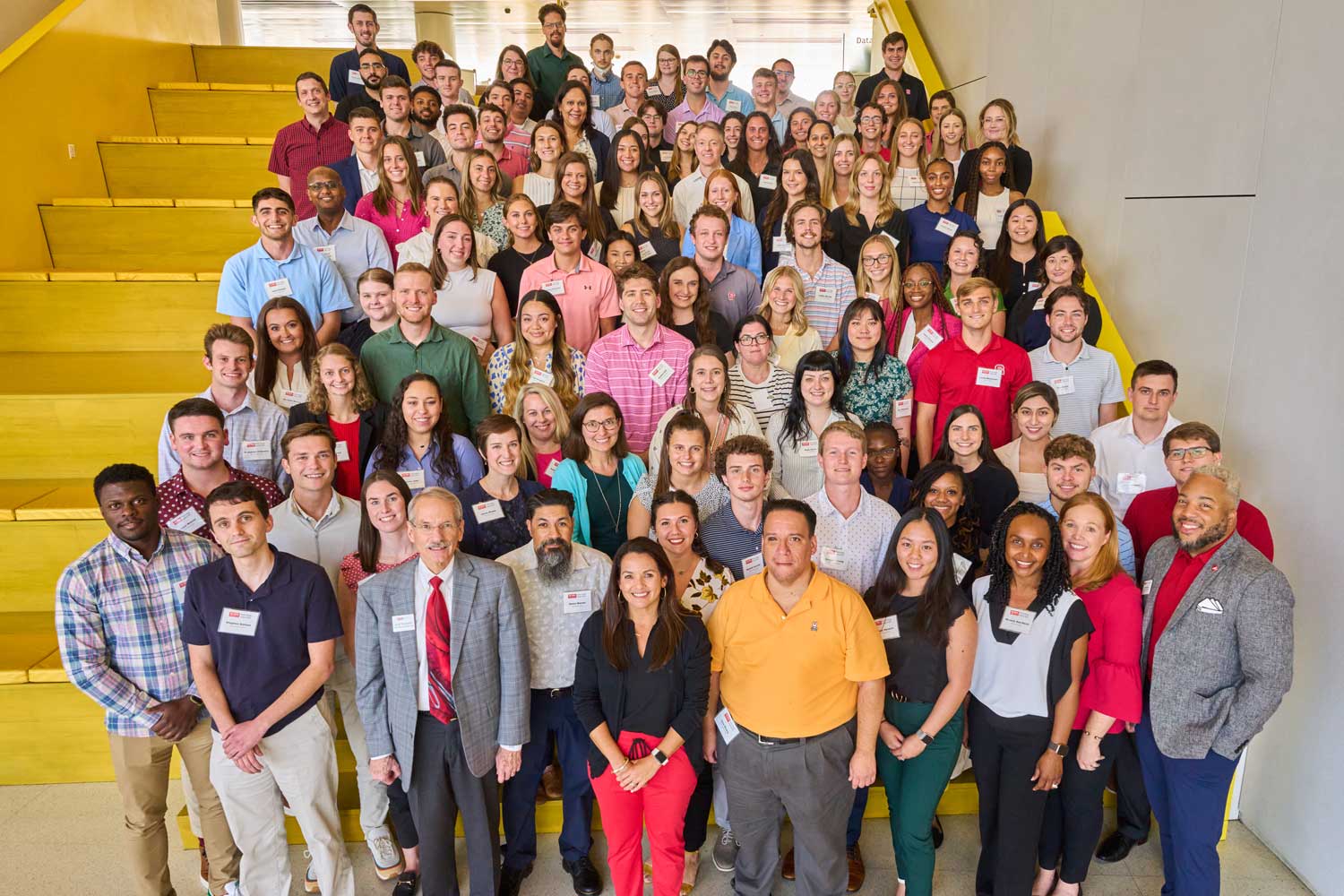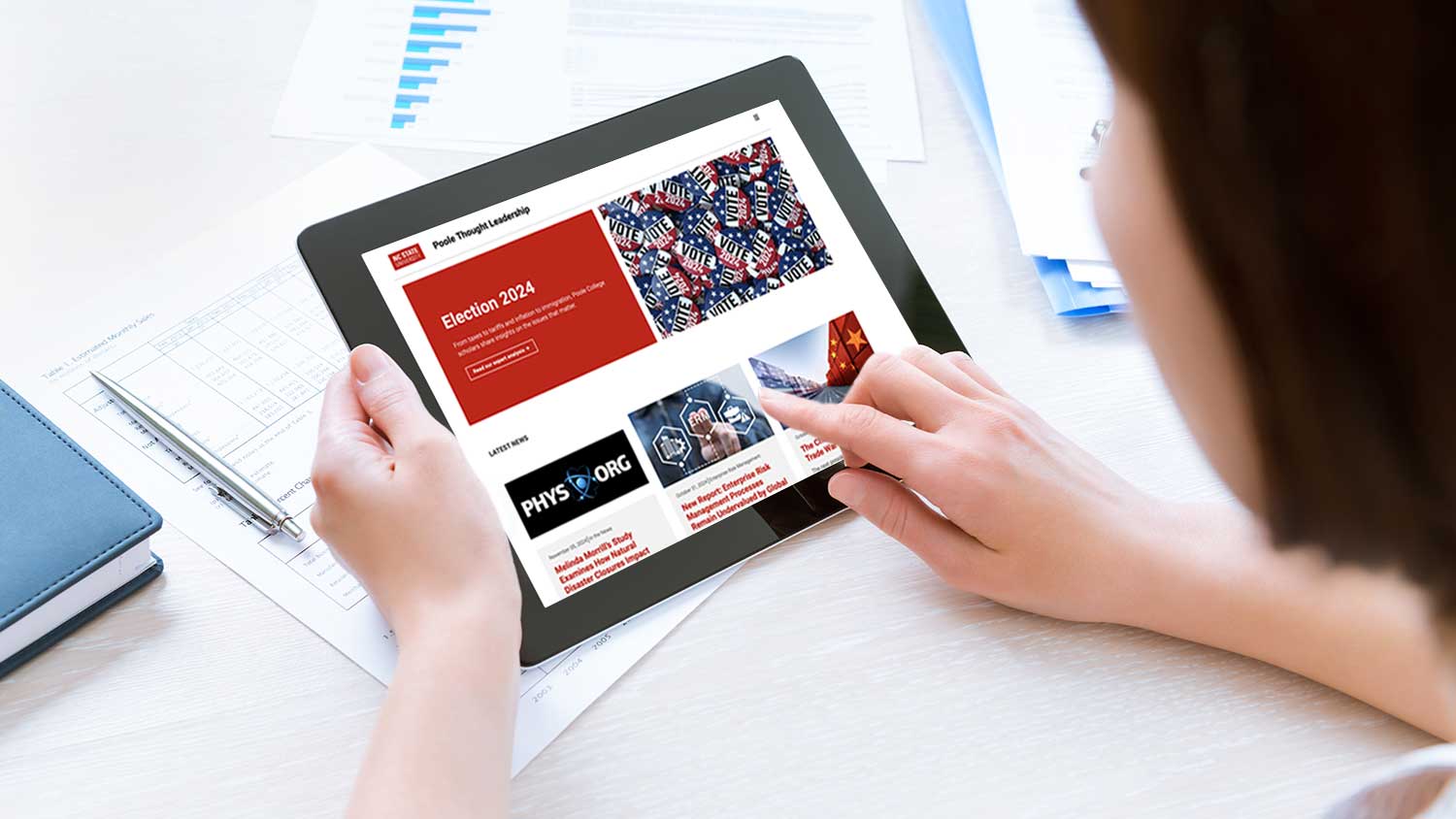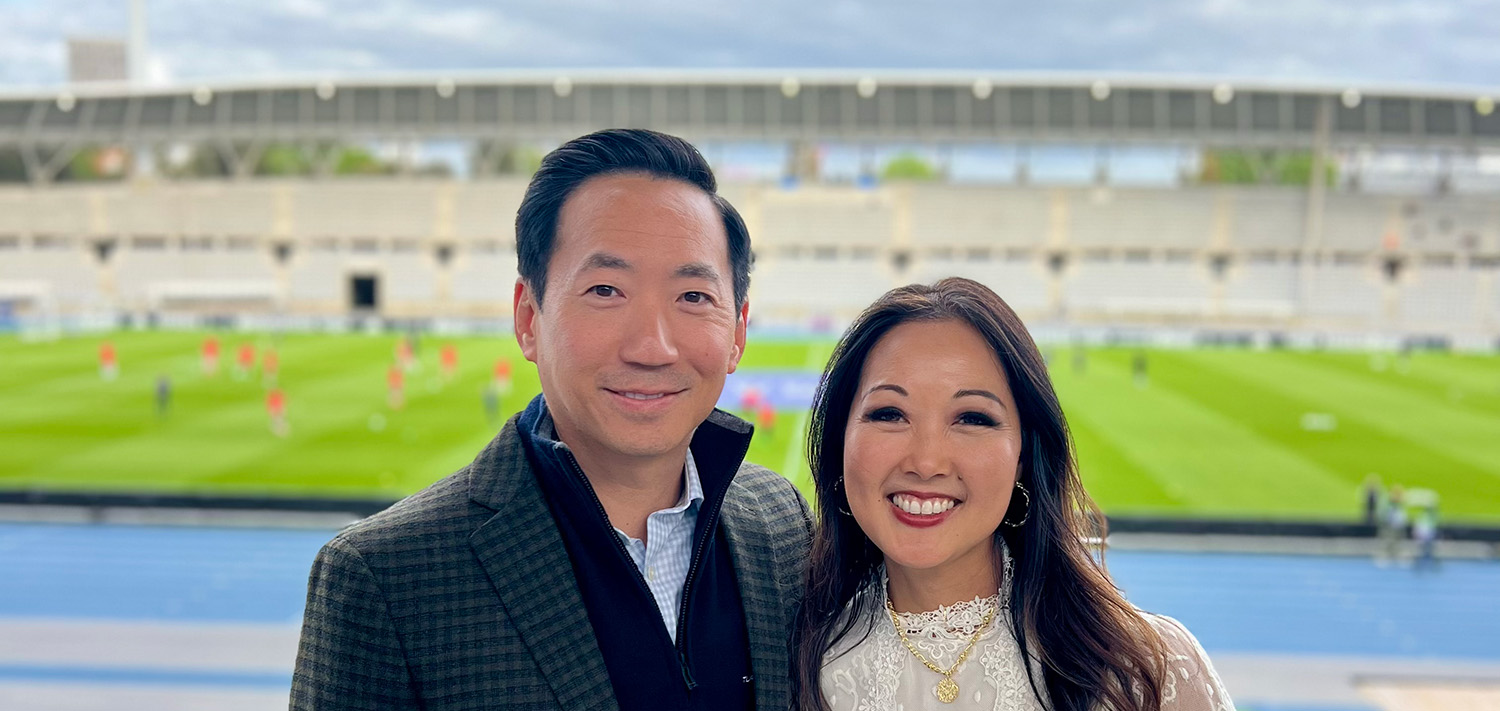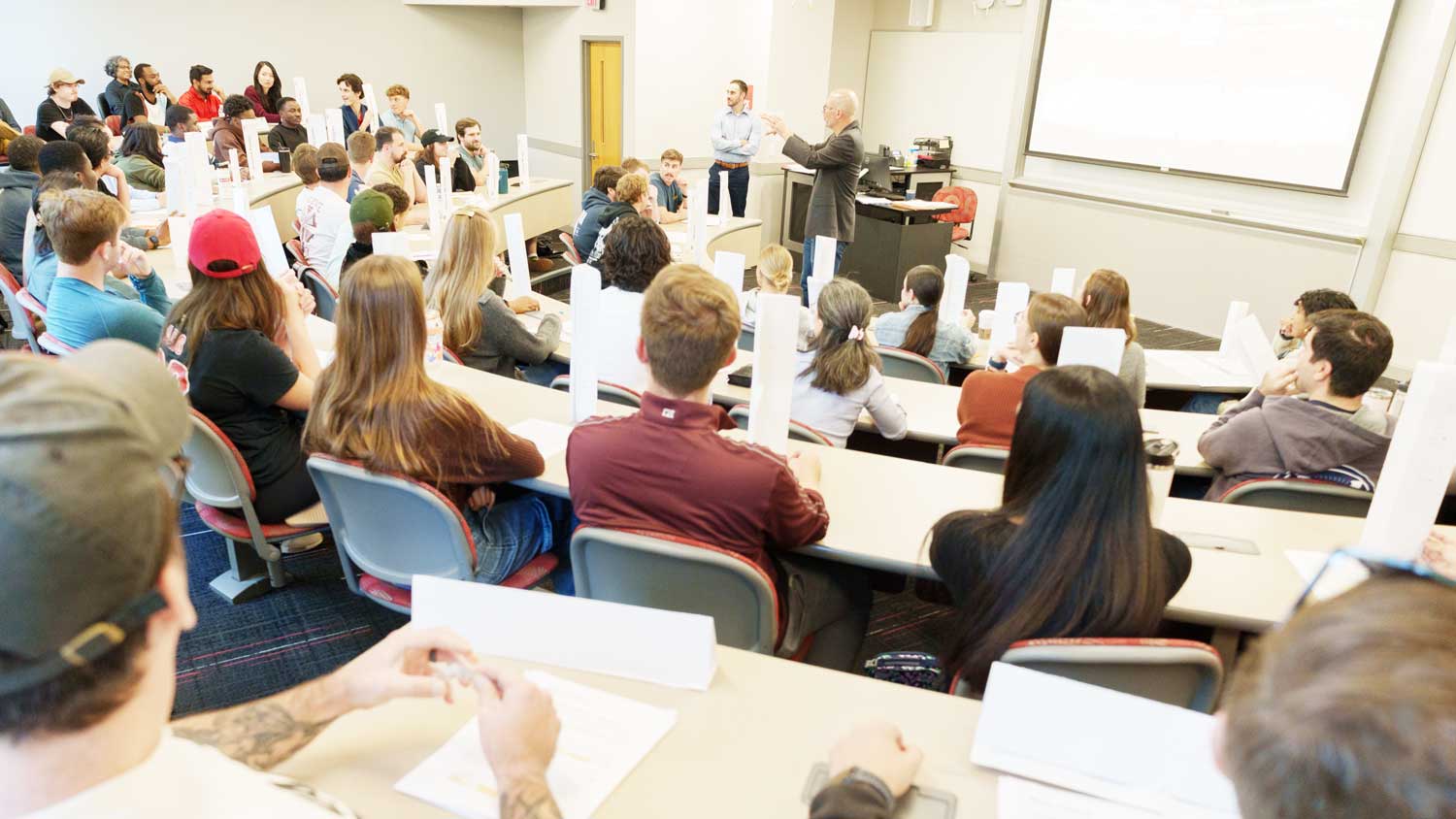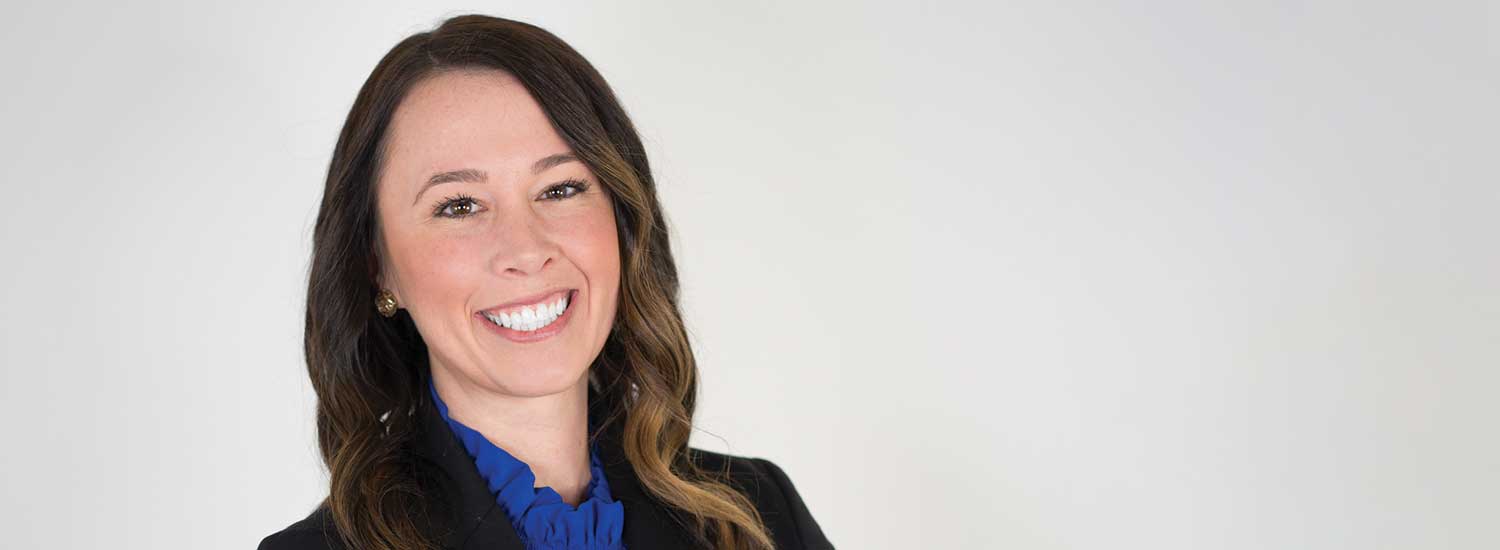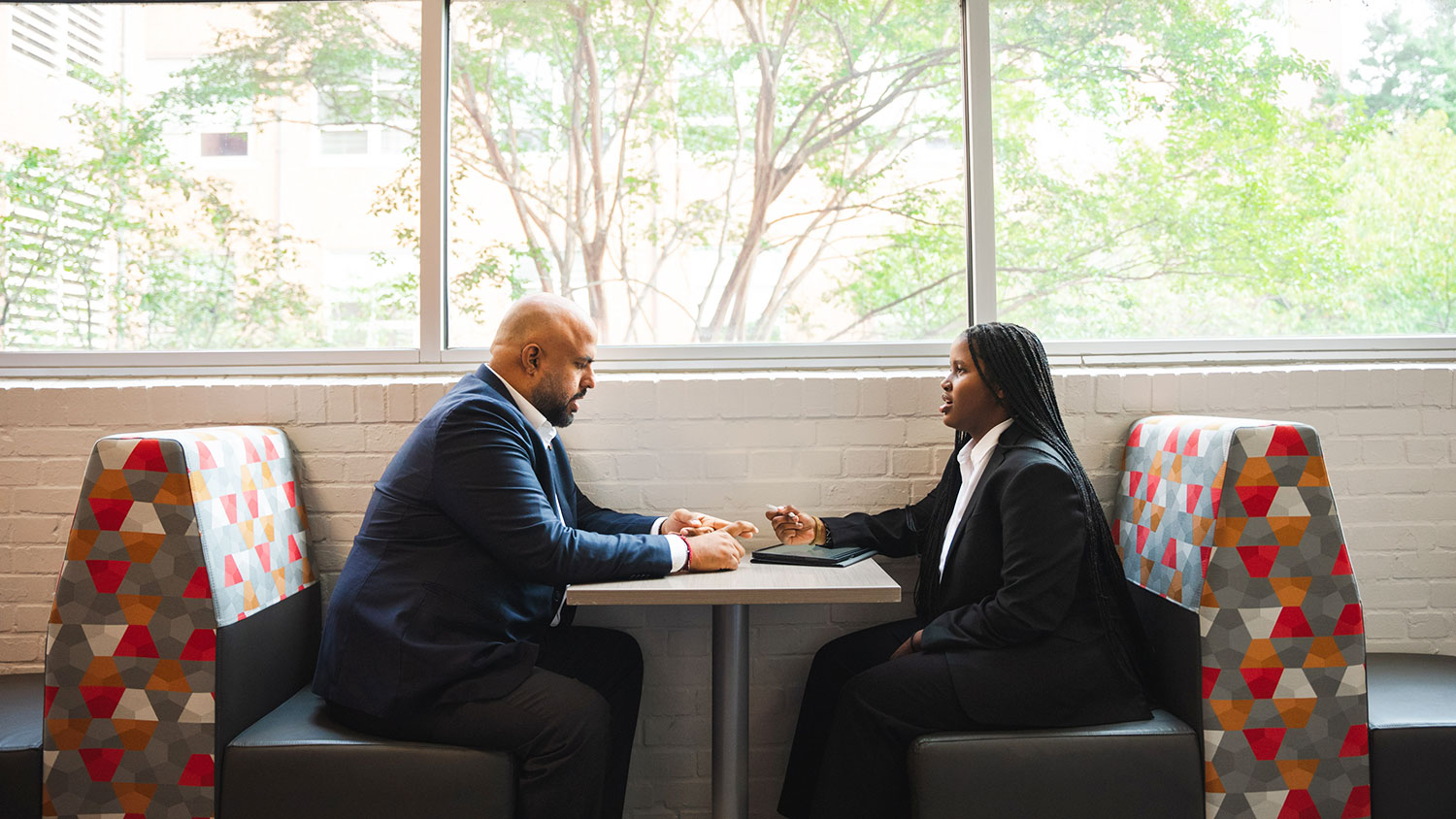Think and Do Down Under
Students get real-world experience on the other side of the globe as they apply the principles of entrepreneurship to help startups in Adelaide, Australia.
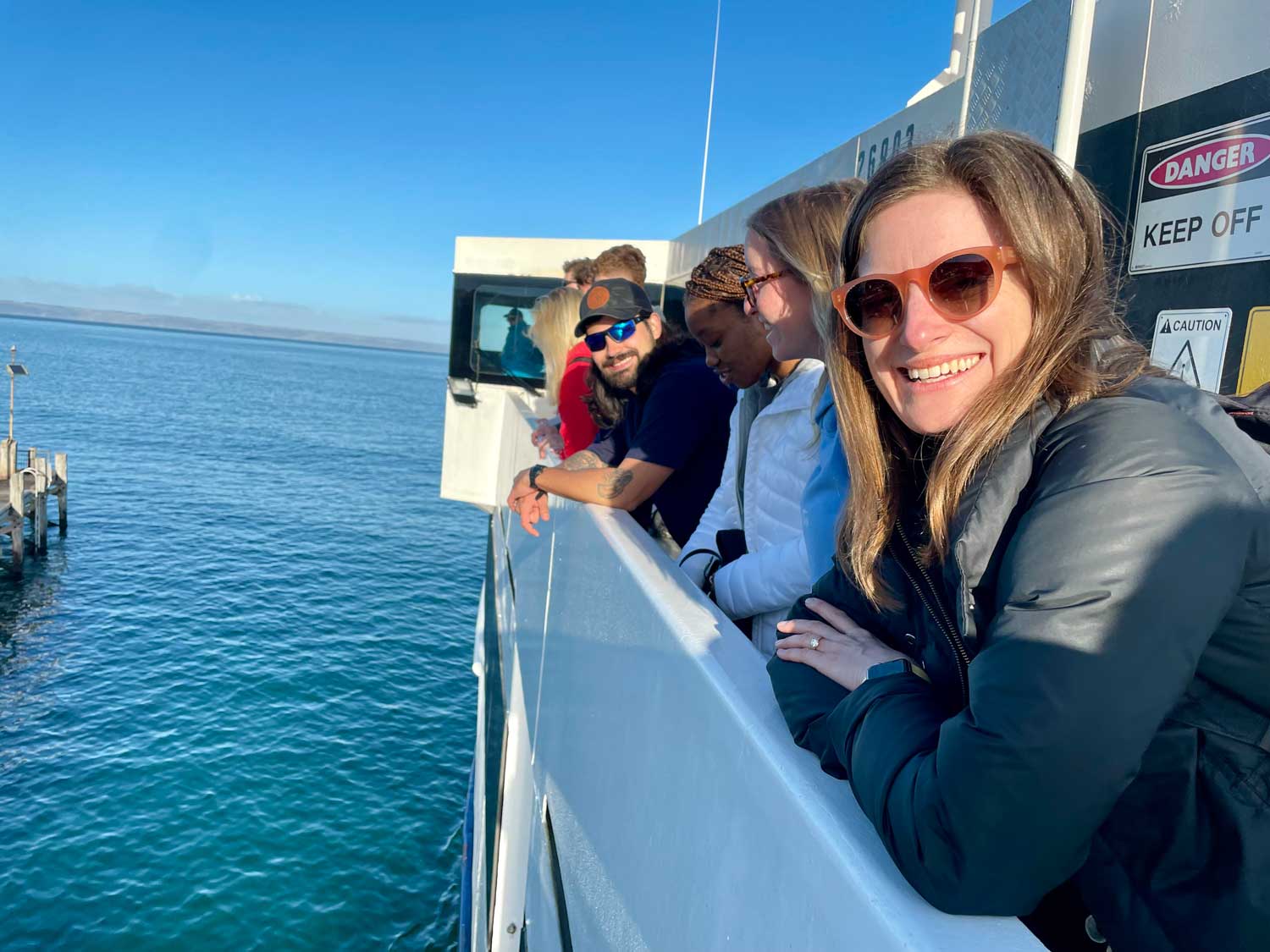
Faith Williams wanted to get out of her comfort zone when she started college four years ago. Not that she had a choice. Her arrival at NC State coincided with a global pandemic that changed almost everything about higher education. Classes went remote, study abroad trips were canceled and internships dried up.
“I had a path for myself that was so clear and set in stone,” she says. “But when I got to NC State, I decided to see what other opportunities had opened up.”
The biological sciences major found opportunity — and inspiration — in a course on business entrepreneurship.
“Much of the time I had no idea what the business majors in the class were talking about,” she laughs. “But I was just kind of enthralled when the professor started talking about leadership and team building. Those were things I talked about all the time. I just didn’t know they played a part in entrepreneurship.”
When the professor divided the students into teams and sent them out to work with different startup companies to solve real-world problems, Williams was hooked.
“Now I was definitely outside my comfort zone,” she says. “But I also really wanted to understand this. I wanted to go into entrepreneurship. It was like a key in a lock for me.”
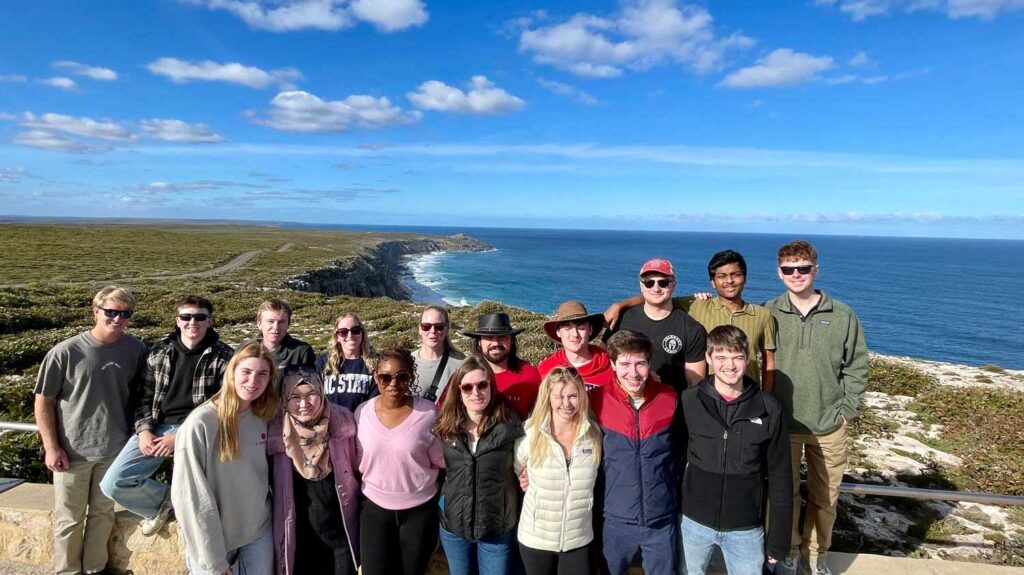
In May, Williams joined 14 other NC State students for a comfort-zone defying experience of a lifetime: a six-week trip to Adelaide, Australia, where they soaked up the local culture, immersed themselves in entrepreneurship best-practices and assisted four startups in taking their products or services to the next level.
By the time the whirlwind excursion was over, Williams and her fellow students were exhausted but proud, calling the trip “incredible,” “eye-opening” and “rewarding.”
Embedding in a ‘Startup Ecosystem’
The Adelaide trip was offered by the Poole College of Management through Poole Global Programs with support from faculty in the college’s Entrepreneurship Clinic, or eClinic for short. ThincLab — a business incubator and downtown coworking space operated by the University of Adelaide — provided classrooms, meeting rooms and other local resources during the trip.
“The students were embedded in a startup ecosystem,” says eClinic Director Haley Huie. “They were learning and practicing at the same time.”
“The students were embedded in a startup ecosystem. They were learning and practicing at the same time.”
–Haley Huie, eClinic Director
Students completed three courses during the trip, earning nearly a semester’s worth of credit hours in just six weeks.
One course, Doing Business Globally, introduced students to some of the region’s economic drivers such as agritourism, entertainment and the wine industry. It included weekly excursions and meetings with investors, business and nonprofit leaders, and faculty members from the University of Adelaide.
Another, Introduction to Entrepreneurship, covered some of the key principles of planning and managing an entrepreneurial venture. Lecturer Liz Tracy, an expert in organizational psychology, compressed the curriculum to just three weeks of intensive instruction for the Adelaide trip.
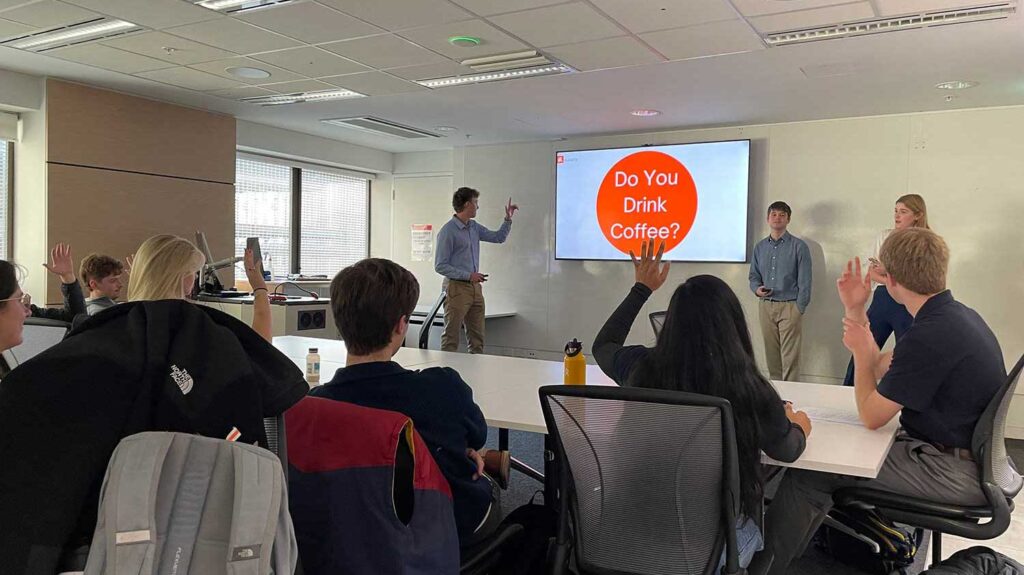
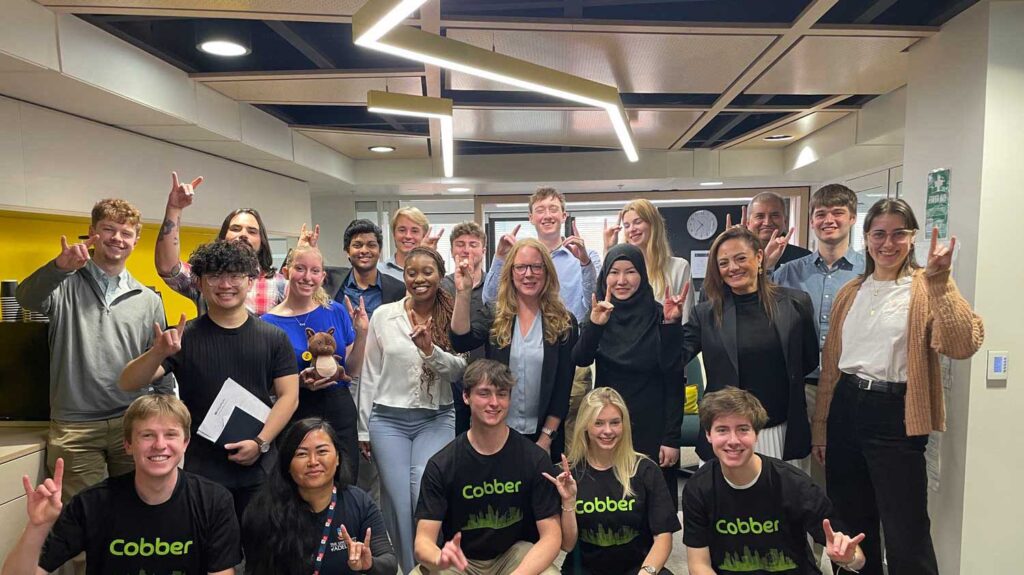
Huie ticks off a list of concepts covered by the course: “What is customer discovery? How do you go out and learn about a market? What skills or abilities do startup founders need to be successful? What does product validation mean?”
That course laid the foundation for Business Opportunity Analysis, a three-week intensive course that divided the students into four teams and assigned them to consult with local startup companies to analyze opportunities and solve real-world problems.
Williams was assigned to a team working with FreddyMatch, a nonprofit agency that runs an online database for people looking for volunteer opportunities. Founder Roxane Foulser-Piggott asked the students to research a potential expansion opportunity.
“It was a truly international project,” she says. “They’re students from the U.S. visiting Australia, and I’m asking them to look at the expansion of an Australian company to the United Kingdom.”
Using the tools and techniques they learned earlier in the trip, the students delivered a proposal that identified areas of the U.K. ripe for FreddyMatch’s services, as well as potential government and business partners. They went a step further, suggesting novel ways of engaging volunteers interested in serving Australia’s aboriginal communities.
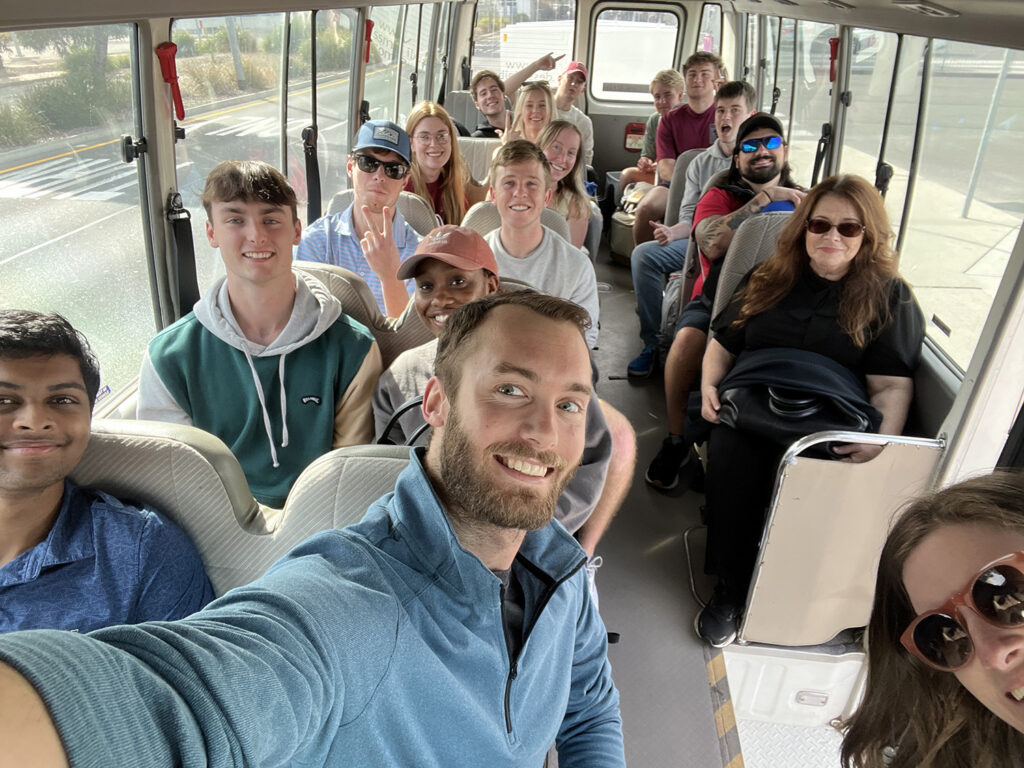
Foulser-Piggott praised the students’ work, as well as their communication skills.
“They were super engaged and enthusiastic,” she says. “They had a lot to do in a very short time but they listened to what I wanted and they kept checking in to make sure that their ideas were in line with what I was looking for.”
Armed with the students’ research, Foulser-Piggott is preparing to allocate resources for her agency’s expansion to the U.K. “This is the sort of thing you pay consulting firms to do,” she says. “I was very impressed.”
‘Everything is an Experiment’
Foulser-Piggott wasn’t alone. Germin Chan, who came to Australia from his native Singapore in 2019 to earn a degree in computer science, launched a startup called Marsupium two years ago. At its core is a financial literacy app that makes saving money fun.
The team assigned to work with Chan helped fill in some of the missing elements in his business plan.
“My focus is more on product development, business analysis and financial models,” Chan says. “Marketing is not my forte. The students did quite a bit of market and sales research, including how to engage different influencers to help us promote our product.”
Their hands-on demonstration of the power of social media left Chan smiling.
“I gave them a kangaroo plush toy when we met and they took videos of it all around Melbourne and Sydney promoting my app,” he says, laughing.
At the end of three weeks, the students presented Chan with a proposed marketing plan that included a budget, time schedule and strategy. He was thrilled.
“They asked the right questions; they knew what they were doing.” –Germin Chan, startup founder
“My expectations weren’t high at the beginning,” he admits. “I thought they were just coming to Australia to have fun. But I was quite surprised and impressed with the content they delivered. They asked the right questions; they knew what they were doing.”
Huie says building student confidence is one of the goals of the eClinic, which is housed inside a coworking space, Raleigh Founded, in the Glenwood South neighborhood. “We embed students in the real world,” she says. “It feels like you’re going to work versus sitting through a lecture.”
“We embed students in the real world. It feels like you’re going to work versus sitting through a lecture.” –Haley Huie, eClinic Director
She and the other instructors brought that philosophy with them on the trip to Adelaide. “We teach our students that everything is an experiment,” she says. “Go do the experiment. Gather as much data as you can and either poke holes in the hypothesis and fail quickly or come up with credible information that you’re headed in the right direction.”
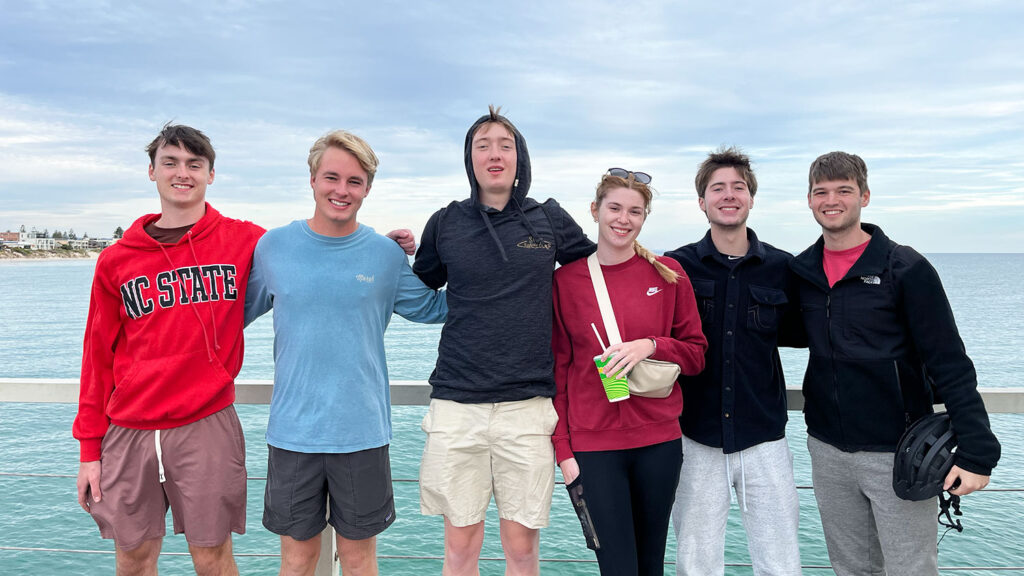
Harper Martin, a sophomore in computer engineering with a minor in business entrepreneurship, says his team hit the ground running. They were tasked with helping an app called Cobber raise its profile online. The app helps people buying used furniture connect with local delivery drivers.
Martin says the team played to its strengths, pairing members with tasks they were confident they could complete.
“I didn’t really know what search engine optimization was, but one of my teammates did, so he covered that and I researched how to create quality content,” he explains. “The other two team members tackled community engagement ideas and other topics.”
In just three weeks they delivered a tutorial on how to repurpose content from the company’s blog for social media, created a Google business profile, revamped Cobber’s search engine optimization efforts, and fleshed out a marketing plan for the month of July.
Leaving Comfort Zones in the Dust
Zeb Scott, a communications major with a minor in business entrepreneurship, says his team also coalesced quickly. They worked with the founder of Reusably, an app that encourages the reuse of metal cups and bowls at many popular restaurants and coffeehouses in Adelaide.
“They wanted our perspective on what direction they should go in the future,” Scott says. “Should they stick with the cups and bowls or focus on providing a software platform that other companies could use to track their carbon footprint?”
The team did intensive customer discovery, conducting 30 interviews over two weeks. They delivered a set of customer profiles based on three personality types they dubbed “Sustainability Sally,” “Middle-of-the-Road Melvin,” and “Don’t Give a Damn Derek.”
They also laid out some business-to-business marketing strategies to help the company target eco-friendly companies that could benefit from their platform.
“If you’re able to commit to taking a 25-hour plane flight to the opposite side of the world, you’re going to be up for tackling some challenges.”
–Zeb Scott, communications manager
“With only three weeks to do the project, we had to jump in headfirst,” Scott says. “It was just figuring each other out along the way and learning how to balance each other’s strengths and weaknesses.”
Much of the time, they were working outside their comfort zone, he says, but that was a feature of the program, not a bug.
“If you’re able to commit to taking a 25-hour plane flight to the opposite side of the world, you’re going to be up for tackling some challenges,” he says. “You’re going to be open to things that are difficult.”
More from Poole Business: Fall 2024
See all in current issue- Categories:
